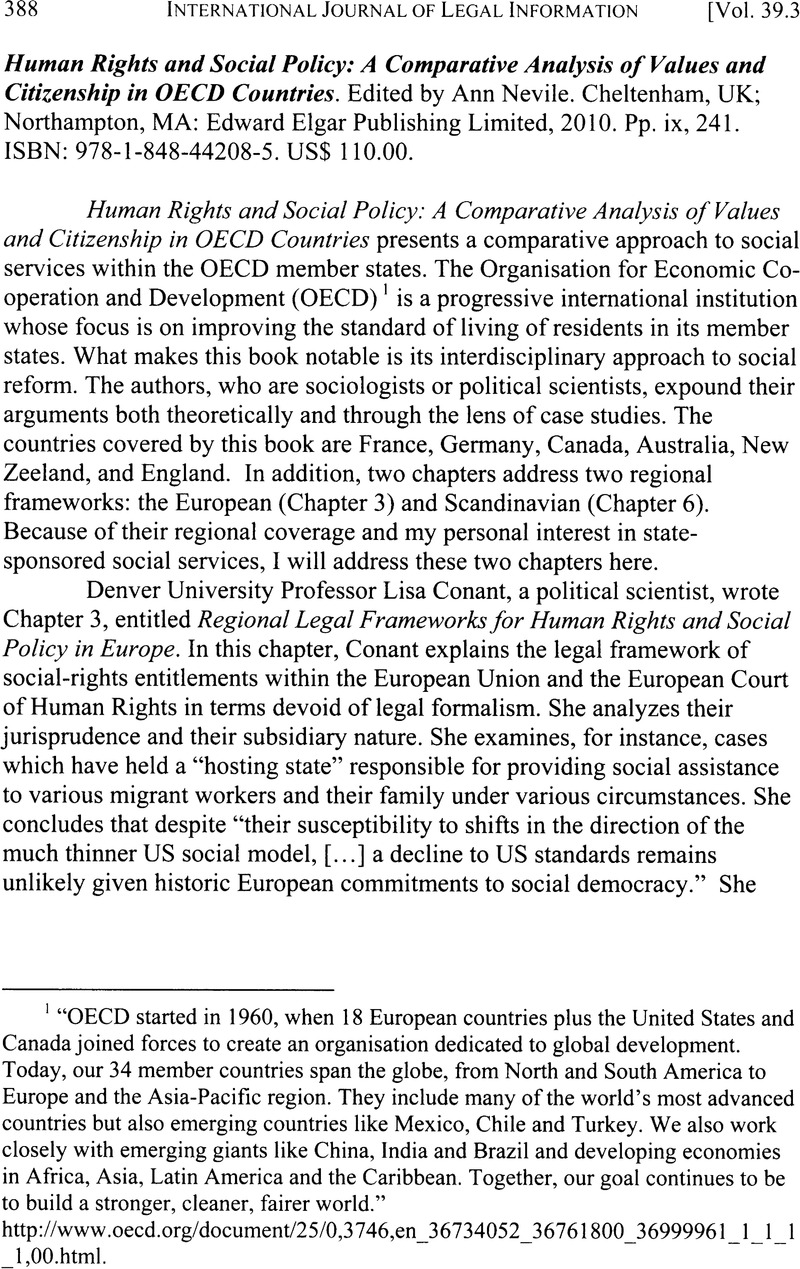No CrossRef data available.
Published online by Cambridge University Press: 28 February 2019

1 “OECD started in 1960, when 18 European countries plus the United States and Canada joined forces to create an organisation dedicated to global development. Today, our 34 member countries span the globe, from North and South America to Europe and the Asia-Pacific region. They include many of the world's most advanced countries but also emerging countries like Mexico, Chile and Turkey. We also work closely with emerging giants like China, India and Brazil and developing economies in Africa, Asia, Latin America and the Caribbean. Together, our goal continues to be to build a stronger, cleaner, fairer world.” http://www.oecd.org/document/25/0,3746,en_36734052_36761800_36999961_1_1_1_1,00.html.Google Scholar
2 On the legislation evolution of the EU Charter of Fundamental rights, see, e.g., Neacsu, The Draft of the EU Charter of Fundamental Rights: A Step in the Process of Legitimizing EU as a Political Entity and Economic-Social Rights as Fundamental Human Rights, 7 Colum. J. Eur. L. 141 (2001).Google Scholar
3 Dana Neacsu, A Brief Critique of the Emaciated State and Its Reliance on Non-Governmental Organizations to Provide Social Services, 9 N.Y. City L. Rev. 405, 421 (2006).Google Scholar